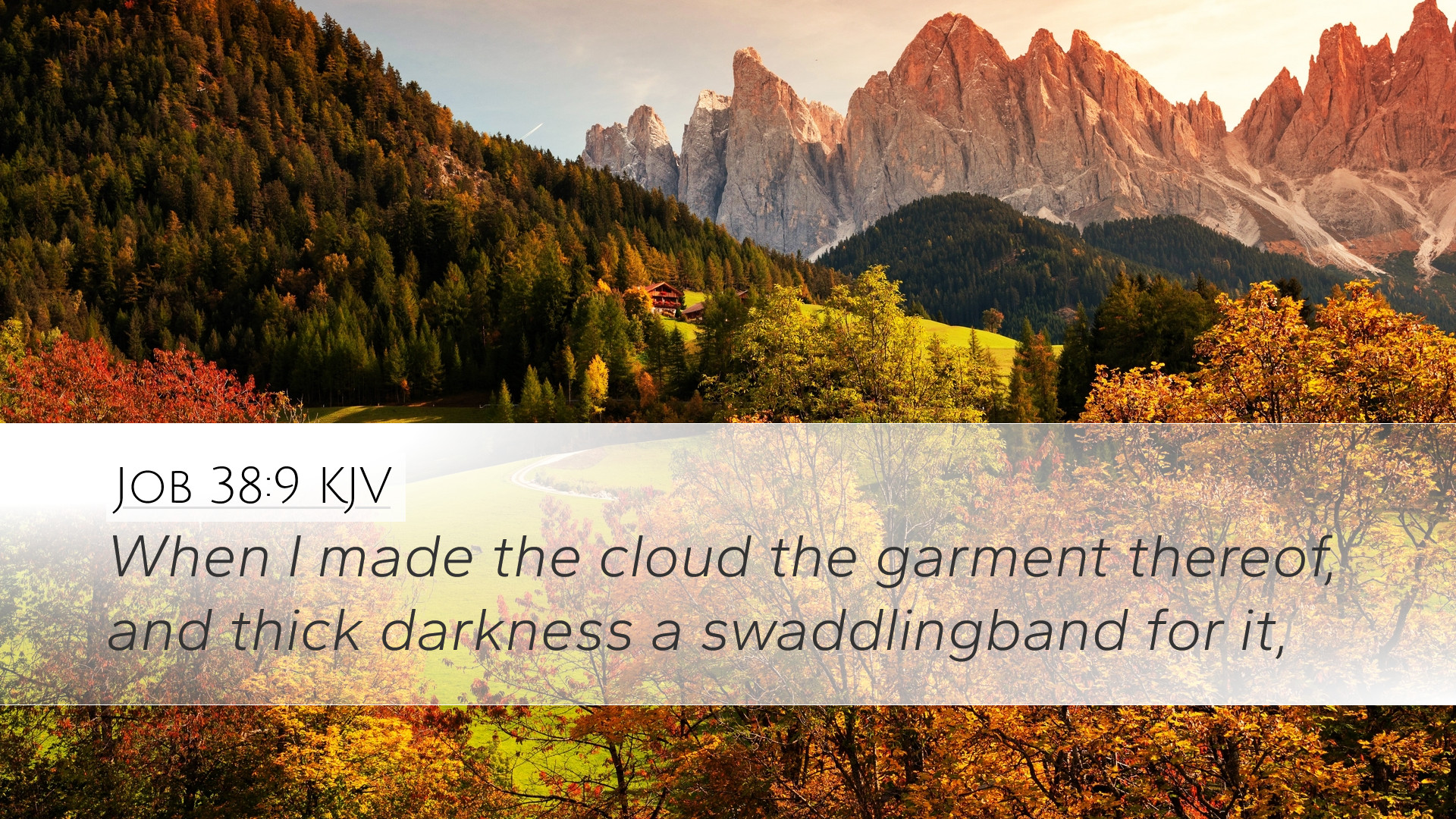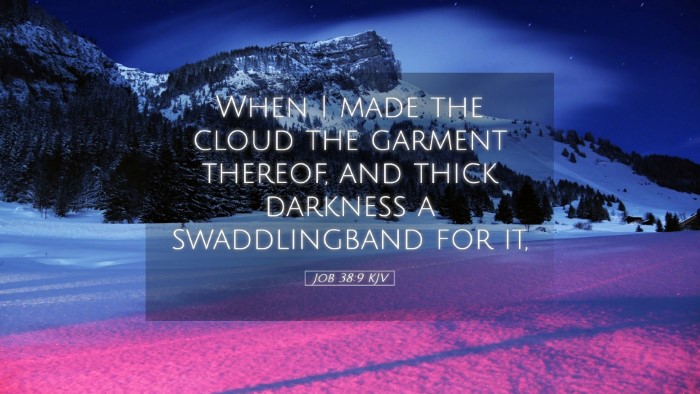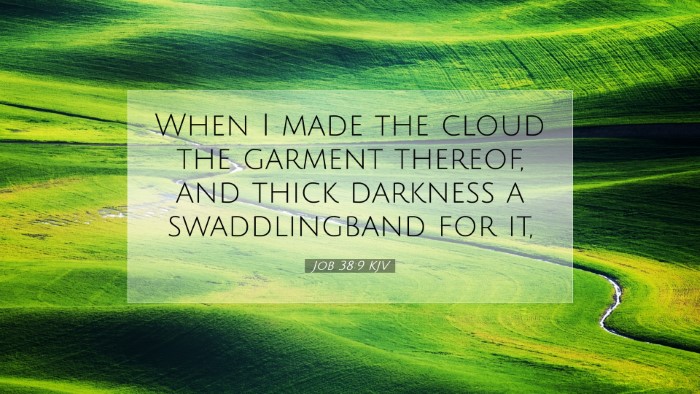Commentary on Job 38:9
Verse Context: Job 38:9 reads: "When I made the clouds the garment thereof, and thick darkness a swaddlingband for it." This verse occurs in the context of God's response to Job, who had been questioning God's justice and the reason for his suffering.
Introduction
This particular verse is a part of a larger discourse where God reveals His sovereignty and creative authority over the universe. In the midst of Job’s lamentations, God speaks from the whirlwind, not with explanations for Job's suffering, but with a series of questions that emphasize His power and the limitations of human understanding. The imagery used in this verse conveys themes of creation, care, and divine majesty.
Commentary Insights
1. God as Creator
Albert Barnes emphasizes God's role as the Creator, stating that the clouds and darkness represent His ability to control the forces of nature. In illustrating how God made the clouds His garment, it reflects His omnipotence and the imaginative act of creation. The clouds symbolize shelter and provision, but they can also signify the power and might of God in the face of chaos.
2. Imagery of Garments
Matthew Henry draws attention to the metaphor of garments and swaddling bands. The clouds as a garment suggest dignity and power, while the swaddling band indicates nurturing and care. Just as an infant is wrapped snugly in swaddling clothes, so too is the earth enveloped in God's protective provisions. This juxtaposition reinforces God's dual role as both powerful Creator and loving caretaker.
3. Divine Sovereignty
Adam Clarke remarks on the sovereignty of God evident in this passage. By describing creation in such vivid imagery, Clarke notes that God reigns supreme over the natural order and that His created elements serve a purpose in His divine plan. This conveys a reminder to believers of God's overarching authority and the idea that He orchestrates all aspects of existence, including suffering and despair.
4. Theological Implications
This verse invites deeper theological reflection on the nature of God and His relationship with creation. It refutes the notion that God is distant or uninvolved. When God uses imagery of clothing and nurturing, it embodies the intimate connection He maintains with His creation, suggesting that even amidst chaos, there is divine order.
5. Comfort in Suffering
Concerning pastoral care, this passage can be a source of comfort for those who suffer. By reminding believers of God’s ultimate authority over the cosmos, it instills a profound trust in God's plan. As Matthew Henry puts it, the believers must acknowledge that with the vastness of God's creative work, He is always aware of, and concerned for, their plight.
6. Creation's Response to God's Authority
The imagery also serves as a reminder of creation's response to God's authority. As the clouds obey their Creator, believers are called to submit to His will, understanding that even in trials, there is a divine purpose at work. Clarke articulates that this surrender acknowledges God's wisdom in allowing certain experiences for spiritual growth.
Practical Applications
The insights gained from Job 38:9 can be utilized in various practical contexts:
- For Pastors: This passage can be woven into sermons that explore God's majesty and sovereignty, especially in times of uncertainty.
- For Theologians: It invites rigorous academic exploration of the themes of creation, divine providence, and human suffering.
- For Students: It serves as a foundational text for understanding the Book of Job and the broader context of divine justice in Scripture.
- For Bible Scholars: This verse provides rich material for exegesis and theological reflection on the nature of God and His creation.
Conclusion
In Job 38:9, we encounter a profound revelation of God's character as Creator and sustainer. The imagery of clouds and darkness beckons believers to recognize God's intimate involvement in creation and His overarching authority over the cosmos. This verse serves not only as a reminder of the grandeur of God but also as an invitation to trust in His purposes—even when life appears shrouded in confusion. As we reflect on this passage, we are encouraged to embrace both the mystery of God’s ways and the comfort of His presence.


